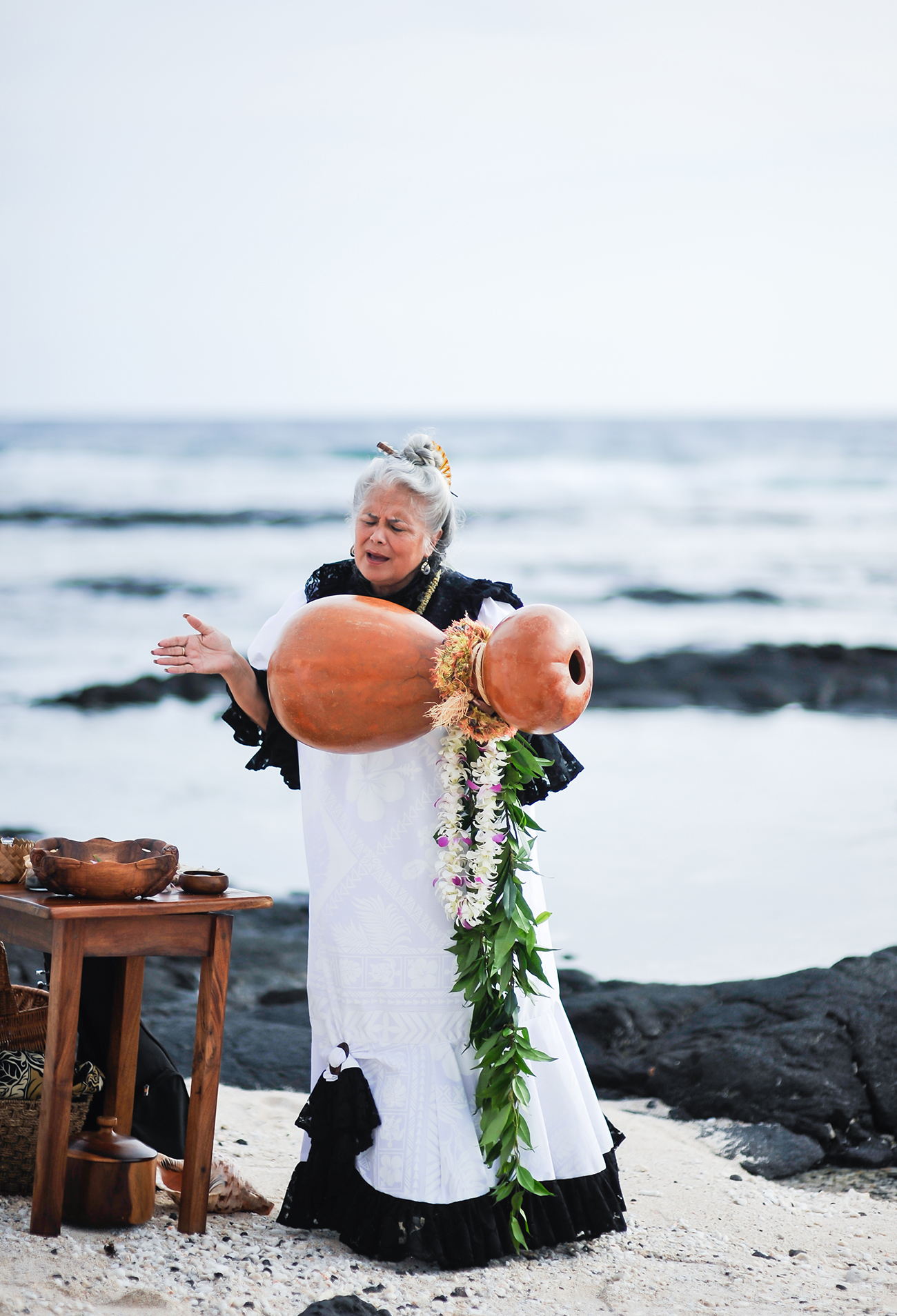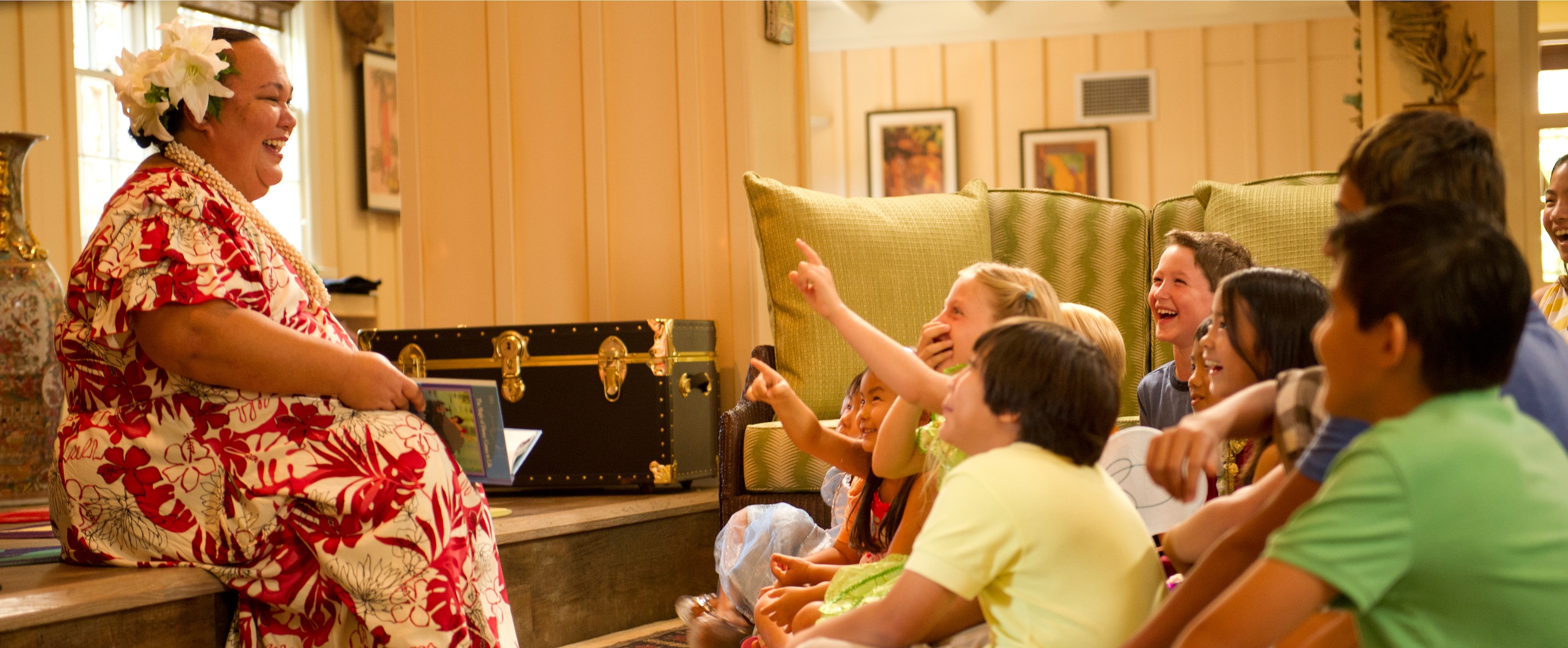Aunty In Hawaiian: The Heart Of Aloha Spirit Explained
When you hear the term "aunty in Hawaiian," it’s not just about family titles—it’s a cultural symbol that runs deep in the islands' traditions. In Hawaii, calling someone an aunty is more than a term of endearment; it’s a gesture of respect, love, and connection. Imagine walking down the streets of Honolulu, and someone you’ve never met greets you as "aunty." It’s not weird—it’s the aloha spirit in action. This article dives into the meaning behind this beautiful tradition, how it reflects Hawaiian culture, and why it matters today.
Calling someone "aunty" isn’t limited to blood relations in Hawaii. It’s a way of showing respect and building community ties. Whether you’re a local or a visitor, understanding this tradition can open doors to deeper connections with the people and culture of the islands. So, buckle up, because we’re about to take you on a journey into the heart of Hawaiian traditions and the role of aunty in everyday life.
From the beaches of Waikiki to the lush landscapes of Kauai, the term "aunty" is everywhere. It’s not just a word; it’s a bridge between generations, a symbol of unity, and a reminder of the importance of family in Hawaiian culture. Let’s explore how this simple term carries so much weight and meaning.
- Filmywap Filmyfly Ist Kostenloses Streaming Legal Infos 2024
- Jerry Oconnell Vom Stand By Mestar Zum Vielseitigen Entertainer
What Does "Aunty" Mean in Hawaiian Culture?
Let’s break it down. In Hawaiian culture, "aunty" is a term used to refer to older women who are respected and admired. It’s not exclusive to family members; anyone who embodies the qualities of wisdom, kindness, and generosity can be called an aunty. This tradition reflects the values of the Hawaiian people, where community and family are at the core of their way of life.
Calling someone aunty is a sign of respect, regardless of whether you’re related by blood. It’s a way of acknowledging someone’s role as a mentor, guide, or simply a person who inspires trust and admiration. In a world where titles often come with formalities, the Hawaiian tradition of aunty is refreshingly simple and heartfelt.
Why Is "Aunty" Important in Hawaiian Society?
The importance of aunty in Hawaiian society goes beyond just a name. It’s a reflection of the values that hold the community together. Aloha, the famous Hawaiian greeting, isn’t just about saying hello—it’s about love, respect, and compassion. Aunty embodies these principles, serving as a role model for younger generations.
- Das Vermgen Von Ashley Gorley Wie Viel Ist Er Wirklich Wert
- Webserien Download Die Besten Plattformen Tipps Fr Dich
Here are a few reasons why aunty is so important:
- Symbol of Respect: Aunty is a title given to women who are respected for their wisdom and experience.
- Community Builder: By calling someone aunty, you’re acknowledging their role in strengthening community ties.
- Cultural Ambassador: Aunty represents the traditions and values of Hawaiian culture, making her a vital link to the past.
Historical Roots of the Term "Aunty" in Hawaii
Like many cultural traditions, the use of "aunty" has deep historical roots. Back in the days before modern Hawaii, families were tightly knit, and extended family members played a crucial role in raising children and maintaining the household. Aunty was often the go-to person for advice, guidance, and support. This tradition has persisted through the years, adapting to the changing times while staying true to its core values.
In ancient Hawaii, the term "aunty" wasn’t just a casual title; it carried significant weight. Elders were revered for their knowledge and experience, and the title of aunty was a way of recognizing their contributions to the community. Even today, this tradition continues, with many people referring to older women as aunty as a sign of respect and admiration.
How Aunty Fits Into the Hawaiian Family Structure
In Hawaiian families, aunty plays a unique role. She’s often seen as a bridge between the older and younger generations, passing down traditions, stories, and values. Whether it’s teaching hula, preparing traditional dishes, or sharing life lessons, aunty is at the heart of family life.
Here’s a quick look at how aunty fits into the family structure:
- Mentor: Aunty often serves as a mentor to younger family members, offering guidance and support.
- Caregiver: In many families, aunty takes on a caregiving role, helping to raise children and care for the elderly.
- Tradition Keeper: Aunty is often the one who keeps the family traditions alive, passing them down to the next generation.
The Role of Aunty in Modern Hawaiian Life
Fast forward to today, and the role of aunty in Hawaiian life is as important as ever. In a world that’s becoming increasingly fast-paced and disconnected, the tradition of aunty offers a sense of grounding and connection. Whether you’re at a family gathering, a community event, or even a casual encounter on the street, calling someone aunty is a way of showing respect and building relationships.
In modern Hawaiian life, aunty isn’t just a title—it’s a lifestyle. It’s about being there for others, offering support, and fostering a sense of community. Whether you’re a local or a visitor, embracing this tradition can help you connect with the people and culture of Hawaii in a meaningful way.
How Visitors Can Embrace the Aunty Tradition
If you’re visiting Hawaii and want to embrace the aunty tradition, here are a few tips:
- Use the Term Respectfully: Calling someone aunty is a sign of respect, so make sure you use it appropriately.
- Learn About Hawaiian Culture: Understanding the values and traditions behind the term can deepen your appreciation for it.
- Engage with the Community: Attend local events, participate in cultural activities, and get to know the people who embody the spirit of aunty.
Common Misconceptions About Aunty in Hawaiian Culture
While the term "aunty" is widely used and loved in Hawaii, there are some misconceptions about it. For starters, not all women who are called aunty are actually related to the people who use the term. It’s not about bloodlines; it’s about respect and connection. Another common misconception is that aunty is only used in formal settings. In reality, it’s a casual and heartfelt term that’s used in everyday conversations.
Here are a few more misconceptions to be aware of:
- It’s Only for Older Women: While aunty is often associated with older women, younger women who embody the qualities of wisdom and kindness can also be called aunty.
- It’s Exclusive to Locals: Visitors can also use the term respectfully, as long as they understand its meaning and significance.
Why Understanding Aunty Matters
Understanding the term aunty is more than just learning a new word; it’s about understanding the values and traditions that define Hawaiian culture. By embracing this tradition, you’re not only showing respect for the people and culture of Hawaii, but you’re also opening yourself up to deeper connections and experiences.
How Aunty Reflects the Aloha Spirit
The aloha spirit is at the heart of Hawaiian culture, and aunty is one of its most visible manifestations. Aloha isn’t just a greeting; it’s a way of life that emphasizes love, respect, and compassion. Aunty embodies these principles, serving as a role model for younger generations and a reminder of the importance of community and family.
Here’s how aunty reflects the aloha spirit:
- Aloha ‘Āina (Love of the Land): Aunty often plays a key role in preserving the natural beauty of Hawaii and teaching others to do the same.
- Aloha Ke Kahi (Respect for Others): By calling someone aunty, you’re showing respect and acknowledging their contributions to the community.
- Aloha Ke Kāne (Balance and Harmony): Aunty helps maintain balance and harmony within the family and community, offering guidance and support when needed.
Stories of Aunty in Action
There are countless stories of aunty in action, from the small, everyday gestures to the big, life-changing moments. Whether it’s helping a neighbor in need, teaching a young child the art of hula, or simply offering a listening ear, aunty is always there to lend a hand.
Here’s one story that illustrates the power of aunty:
Once, a young woman visiting Hawaii got lost on her way to a hiking trail. A local woman, who she had never met before, stopped her car and offered to help. The woman introduced herself as "Aunty Mary" and not only gave her directions but also invited her to a family luau later that week. It was a small act of kindness, but it left a lasting impression on the young woman, who came away with a deeper understanding of the aloha spirit.
Challenges Facing the Aunty Tradition Today
While the tradition of aunty is alive and well in Hawaii, it’s not without its challenges. In a rapidly changing world, some worry that the values and traditions embodied by aunty are at risk of being lost. Modern lifestyles, economic pressures, and cultural shifts all pose challenges to the continuation of this beloved tradition.
Here are a few of the challenges facing the aunty tradition today:
- Generational Gaps: As younger generations grow up in a more globalized world, some worry that they may lose touch with the traditions of their elders.
- Economic Pressures: The rising cost of living in Hawaii can make it difficult for families to maintain the close-knit relationships that are at the heart of the aunty tradition.
- Cultural Shifts: As Hawaii becomes more diverse, there’s a risk that the unique cultural traditions of the islands may be diluted or lost.
How to Preserve the Aunty Tradition
Preserving the aunty tradition requires a concerted effort from everyone in the community. Whether you’re a local or a visitor, there are things you can do to help keep this tradition alive:
- Support Local Culture: Attend cultural events, support local businesses, and learn about the traditions that make Hawaii unique.
- Mentorship Programs: Encourage younger generations to seek out mentors and role models who embody the spirit of aunty.
- Community Engagement: Get involved in community activities and initiatives that promote the values of respect, compassion, and connection.
Conclusion: Embracing the Spirit of Aunty
In conclusion, the term "aunty in Hawaiian" is more than just a title; it’s a symbol of respect, love, and connection. Whether you’re a local or a visitor, embracing this tradition can open doors to deeper connections with the people and culture of Hawaii. By understanding the values and traditions behind the term, you can help preserve this beautiful tradition for future generations.
So, the next time you’re in Hawaii, don’t hesitate to call someone aunty. It’s a small gesture that can make a big difference. And who knows? You might just find yourself being welcomed into the heart of Hawaiian culture in ways you never imagined.
Feel free to share your thoughts and experiences in the comments below. Mahalo (thank you) for reading, and aloha!
Table of Contents
- Aunty in Hawaiian: The Heart of Aloha Spirit Explained
- What Does "Aunty" Mean in Hawaiian Culture?
- Why Is "Aunty" Important in Hawaiian Society?
- Historical Roots of the Term "Aunty" in Hawaii
- How Aunty Fits Into the Hawaiian Family Structure
- The Role of Aunty in Modern Hawaiian Life
- How Visitors Can Embrace the Aunty Tradition
- Common Misconceptions About Aunty in Hawaiian Culture
- How Aunty Reflects the Aloha Spirit
- Stories of Aunty in Action
- Challenges Facing the Aunty Tradition Today
- Jerry Oconnell Vom Stand By Mestar Zum Vielseitigen Entertainer
- Online Comics Eine Grenzenlose Welt Der Geschichten Mehr

Aunty Tutu — ALOHILANI Weddings Specializing in Intimate Elopements

Aunty Dawn Wasson Hawaiian Sovereignty Aha Aloha Aina 2016 Honolulu

Aunty's Beach House Kids Club Aulani Hawaii Resort & Spa